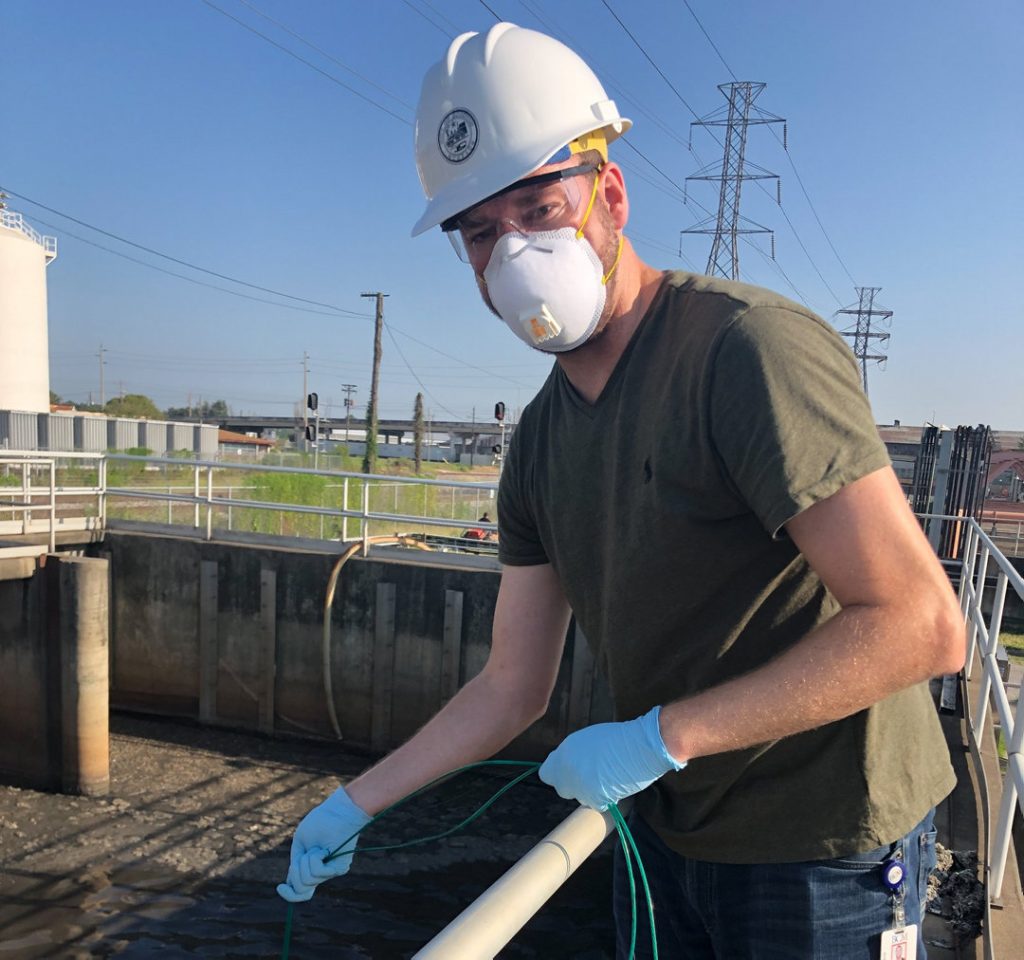BY EMILY GRAHAM
Schuylkill County native Austen Terwilliger has been part of a research team studying wastewater to track outbreaks of COVID-19 in the City of Houston.
Terwilliger is the director of operations for Tailored Antibacterials and Innovative Laboratories for Phage Research, TAILOR, at Baylor College of Medicine. The TAILOR group works in infection control, using phages, or viruses that infect and kill bacteria, to help treat bacterial infections in patients.
In May, TAILOR began using its methods to track SARS-COV-2 in wastewater. Terwilliger said the team now collects samples from 39 wastewater sites around Houston.
“We know that a large percentage of people who are infected with SARS-COV-2, maybe 40-50% of people, will shed those viral genomes in their stool, which is going to end up in wastewater,” Terwilliger said. “The goal is to be able to detect where outbreaks are occurring in real time so that the city can divert their time and resources to those places to have the biggest impact and help stem the spread.”
While nasal swab testing may only catch those who are sick and symptomatic, Terwilliger said the wastewater method can cover 3.6 million people every week.
“We are testing 39 different wastewater treatment plants serving different regions of the City of Houston, as well as specific sites, like schools,” Terwilliger said. “Schools are back in session, and we are tracking how well they are doing there. And home care living centers, any type of congregated living centers where an outbreak would be of highest concern, we are testing wastewater samples around those sites, too.”
Terwilliger said when they find a viral signal rise in wastewater, around one to two weeks later, there will be a rise in cases in that area. The data is reported to the Houston Health Department every week and sent to the office of the mayor.
“What the Houston Health Department has been doing is they send out what they call strike force teams that are focused on testing more people in these regions, but also going door to door having meetings and being able to explain what is going on and teaching people about the risks and hazards of COVID,” Terwilliger said.
Terwilliger said doing work that has this kind of effect is a dream of many scientists.
“A lot of times in basic research science, people like myself, doing our thesis work is work that may never see an impact on any human, on any patient in our lives. It’s just gathering information and knowledge for the next generation of scientists to work on and build upon,” he said. “Whereas here, we know that this data we are getting this day is going to the mayor of Houston and being used to inform actions and policies in the City of Houston.”
Terwilliger said many people have contributed to different parts of the research, including Lauren Stadler, Ph.D., professor of civil engineering at Rice University, Loren Hopkins, Ph.D., chief environmental science officer for Houston Health Department, Kathy Ensor, professor of statistics at Rice University, and the lab of Dr. Tony Piedra at Baylor College of Medicine. Terwilliger said he has been most involved in developing methods of processing large amounts of samples in a matter of two to three days to produce data each week.
Terwilliger, a son of Neil and Vicki Terwilliger, of Sacramento, said he has always been interested in working with living things and how they interact with each other, especially after growing up in Schuylkill County.
“My family owns a potato farm, Huntsinger Farms,” Terwilliger said. “A good bit of my childhood was growing up on the farm and doing farm labor. I spent a lot of time outside, not just because there was all this farm around me, but there was woods, there were ponds, there were creeks. That was sort of the first spark in childhood, which you may not get in most places.”
After graduating from Tri-Valley High School in 2005, Terwilliger went to the University of Pittsburgh with a bachelor’s degree in general biological sciences and a minor in chemistry. He then attended Baylor College of Medicine as a graduate student in 2011, doing his thesis work on Bacillus anthracis, the bacteria that causes anthrax.
Terwilliger said this past year has made him miss Schuylkill County and the nature he grew up around more than usual, as he has not been able to visit since Christmas 2019.
“I definitely missed it this year, not just for my family, but also for the things I’m used to seeing,” Terwilliger said. “Living in more city, urban type areas, it can be difficult to have those kinds of experiences that I had growing up.”

Caitlin Heaney West is the content editor for Access NEPA and oversees the Early Access blog in addition to working as a copy editor and staff writer for The Times-Tribune. An award-winning journalist, she is a summa cum laude graduate of Shippensburg University and also earned a master’s degree from Marywood University. Caitlin joined the Times-Shamrock family in 2009 and lives in Scranton. Contact: cwest@timesshamrock.com; 570-348-9100 x5107; or @cheaneywest




